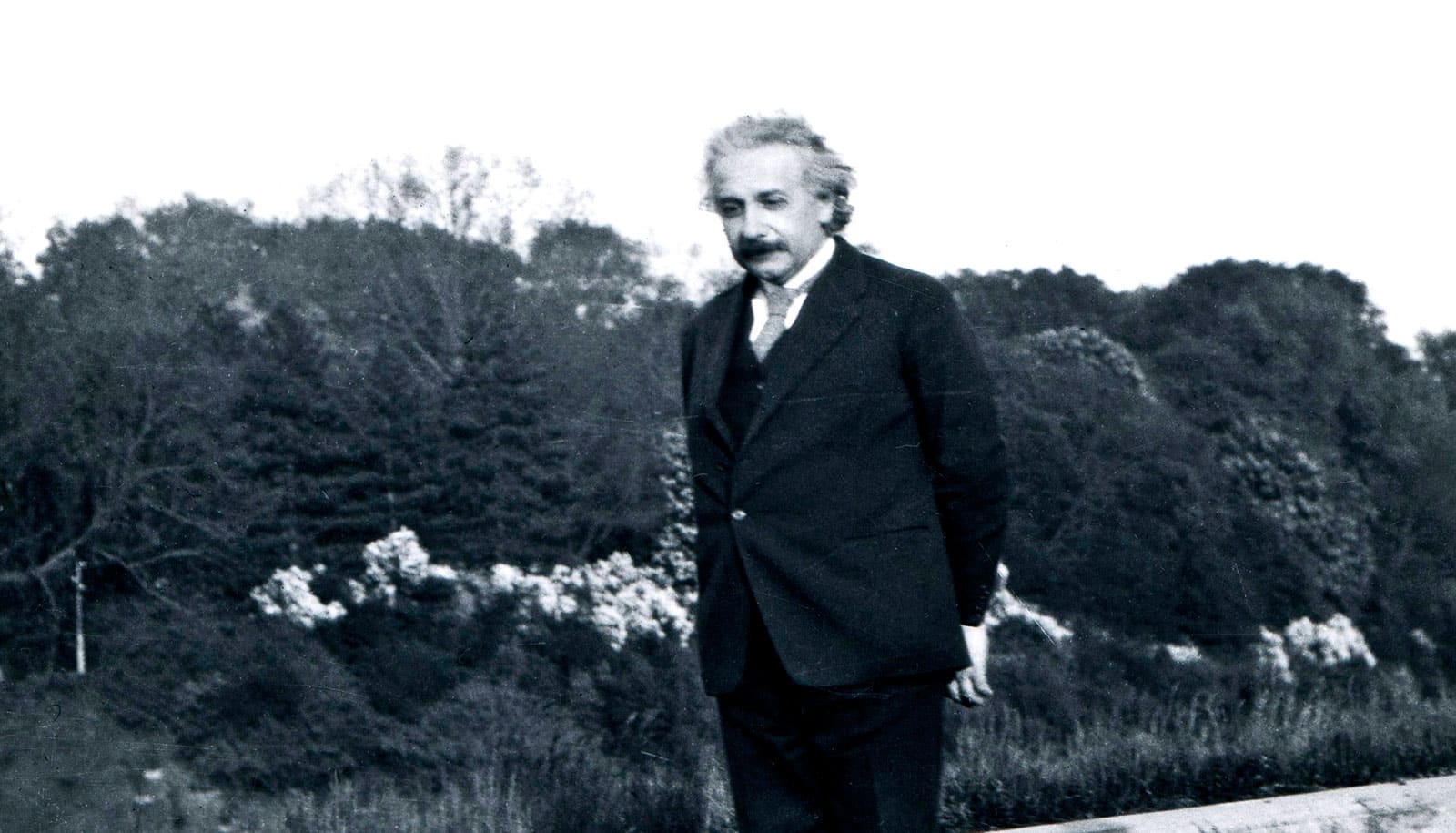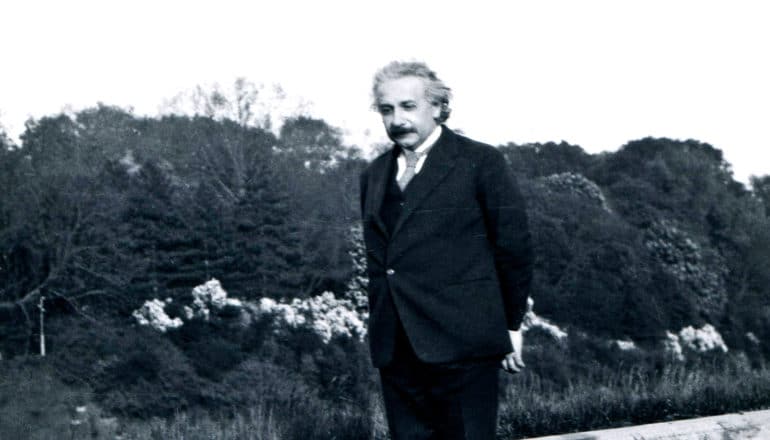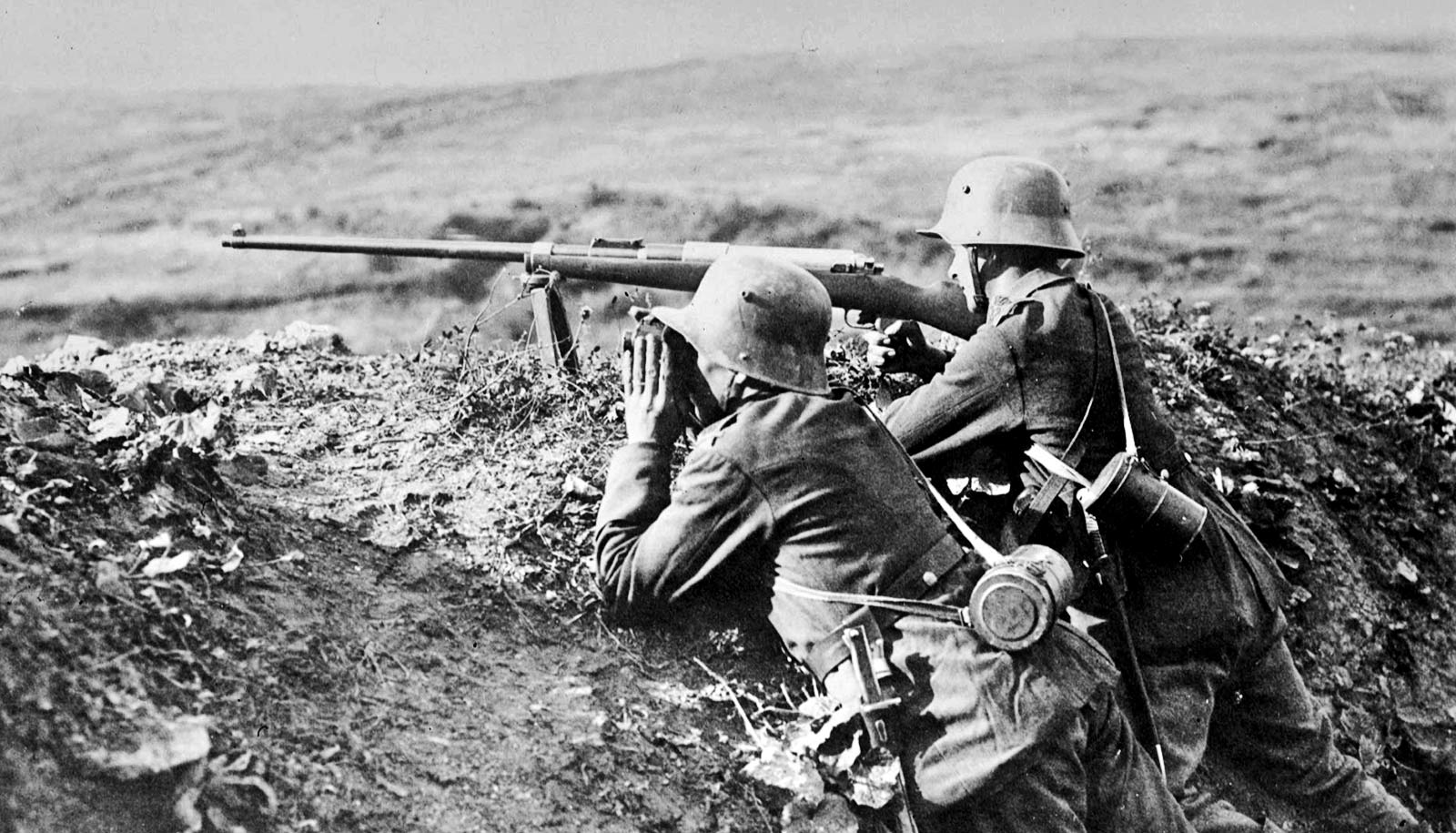
"...science is always tied up with political questions, especially in wartime," says Matthew Stanley. (Credit: Wikimedia Commons )
How Einstein’s work survived ‘scientific nationalism’ of WWI
A historian explains how war and politics almost overshadowed Albert Einstein's work and why Veterans Day should remind us of the threat of nationalism.

This Veterans Day, the parades and memorials should remind all of us that ultra-nationalism—surging anew in Europe, the US, and South America—harbors the spark to ignite another catastrophic international conflict, historian Matthew Stanley argues.
“I would say we are pretty far down that road again,” warns Stanley, a professor in New York University’s Gallatin School of Individualized Study, historian of science, and the author of Einstein’s War (Penguin Random House, 2019).
This year, Veterans Day, the federal holiday honoring the service and sacrifice of US military vets, takes place on November 11, coinciding with Europe’s Armistice or Remembrance Day, which commemorates the end of World War I. The observances hold added poignancy on both sides of the Atlantic this year, as they fall during the 100th year since the formal signing of the Treaty of Versailles, the agreement that consigned the Great War to history.
Stanley’s new book documents how Albert Einstein’s general theory of relativity—published in 1915 while he was director of the Kaiser Wilhelm Institute of Physics in Berlin—was met with great curiosity but little engagement by peer scientists from Allied nations fighting one of the deadliest wars in history against Germany and other Central Powers.
Fortunately, Sir Arthur Eddington, an English astronomer and secretary of the Royal Astronomical Society, was a pacifist like Einstein and chose to look past the scientist’s home country to pursue scientific truth. As one of the few astronomers with the mathematical skills to understand general relativity, Eddington went on to prove the theory’s validity in an experiment he conducted off the coast of West Africa during a solar eclipse in May 1919.
It was a triumph, however rare for that time, or really any time, over scientific nationalism, Stanley says. Here, he explains what lessons from that story we can apply within our own political environment:
The post How Einstein’s work survived ‘scientific nationalism’ of WWI appeared first on Futurity.
Share this article:
This article uses material from the Futurity article, and is licenced under a CC BY-SA 4.0 International License. Images, videos and audio are available under their respective licenses.
Related Articles:
New book revives ‘Western Front’ author’s lost WWI stories
Jan. 22, 2019 • futurityNormandy sand holds relics of D-Day
June 6, 2019 • futurityLinks/images:
- https://gallatin.nyu.edu/people/faculty/ms5100.html
- https://www.penguinrandomhouse.com/books/608113/einsteins-war-by-matthew-stanley/
- https://www.futurity.org/black-hole-tones-2159032/
- https://www.futurity.org/theory-of-relativity-einstein-eclipse-book-2172242/
- https://www.futurity.org/albert-einstein-relativity-nationalism-wwi-2204502/
- https://www.futurity.org


